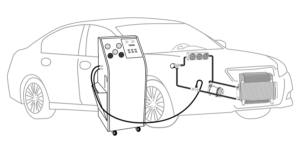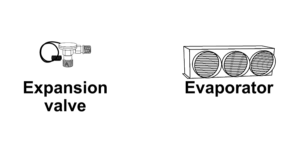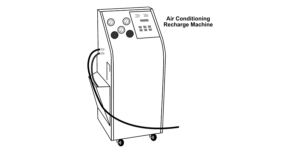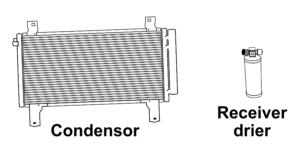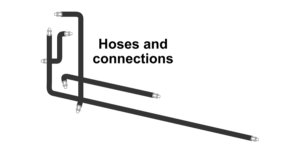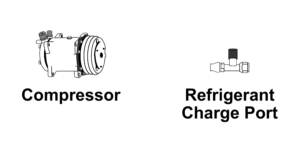Air conditioning (AC) systems are essential for maintaining comfortable indoor temperatures, especially in hot climates. However, like any mechanical system, they require regular maintenance and servicing to function efficiently. Proper AC service ensures optimal performance, extends the system’s lifespan, improves energy efficiency, and enhances indoor air quality.
This article provides a detailed guide on air conditioning system service, covering:
-
The Importance of Regular AC Service
-
Signs Your AC Needs Servicing
-
Key Components of AC Servicing
-
DIY Maintenance Tips
-
When to Call a Professional
-
Choosing the Right HVAC Service Provider
-
Common AC Problems and Solutions
-
Benefits of Routine AC Maintenance
By the end of this guide, you’ll understand how to keep your air conditioning system running smoothly and when to seek professional help.
1. The Importance of Regular AC Service
Regular AC servicing is crucial for several reasons:
A. Improved Efficiency
A well-maintained AC system operates more efficiently, consuming less energy while delivering better cooling performance. Dirty filters, clogged coils, and low refrigerant levels force the system to work harder, increasing energy bills.
B. Extended System Lifespan
Routine maintenance prevents wear and tear, reducing the risk of major breakdowns. A neglected AC unit may fail prematurely, requiring costly replacements.
C. Better Air Quality
Dust, mold, and allergens can accumulate in an unclean AC system, circulating polluted air indoors. Regular cleaning improves air quality, benefiting those with allergies or respiratory issues.
D. Cost Savings
Preventive maintenance helps avoid expensive repairs. Small issues, if ignored, can escalate into major problems requiring component replacements.
E. Consistent Cooling Performance
Servicing ensures the AC delivers consistent cooling without unexpected failures during peak usage.
2. Signs Your AC Needs Servicing
Recognizing early warning signs can prevent major breakdowns. Look out for:
-
Weak Airflow – Could indicate a clogged filter or failing blower motor.
-
Warm Air – May signal refrigerant leaks or compressor issues.
-
Unusual Noises – Grinding, squealing, or rattling sounds suggest mechanical problems.
-
High Humidity – An AC should dehumidify; excess moisture may indicate a malfunction.
-
Frequent Cycling – Short cycling (turning on/off too often) points to thermostat or refrigerant issues.
-
Foul Odors – Musty smells suggest mold growth, while burning odors may indicate electrical problems.
-
High Energy Bills – A sudden spike in costs often means the AC is losing efficiency.
If you notice any of these signs, schedule a professional inspection.
3. Key Components of AC Servicing
A comprehensive AC service includes:
A. Cleaning or Replacing Air Filters
Dirty filters restrict airflow, reducing efficiency. Replace disposable filters every 1-3 months; clean reusable ones monthly.
B. Checking Refrigerant Levels
Low refrigerant reduces cooling power and strains the compressor. A technician should inspect for leaks and recharge if necessary.
C. Cleaning Condenser and Evaporator Coils
Dust and debris on coils hinder heat exchange. Annual cleaning improves performance.
D. Inspecting and Cleaning Drain Lines
Clogged drains cause water leaks and humidity issues. Flushing the drain line prevents mold growth.
E. Checking Electrical Components
Loose wiring, corroded contacts, or faulty capacitors can lead to system failure. A technician should test connections and voltage.
F. Lubricating Moving Parts
Motors and bearings need lubrication to reduce friction and prevent overheating.
G. Testing Thermostat Calibration
An inaccurate thermostat leads to uneven cooling. Calibration ensures proper temperature control.
H. Inspecting Ductwork for Leaks
Leaky ducts waste energy. Sealing gaps improves efficiency.
4. DIY Maintenance Tips
While professional servicing is essential, homeowners can perform basic maintenance:
-
Change filters regularly.
-
Keep outdoor units clear of debris, leaves, and vegetation.
-
Clean vents and registers to ensure proper airflow.
-
Check thermostat settings and replace batteries if needed.
-
Inspect drain lines for clogs and flush with vinegar if necessary.
Avoid handling refrigerant or electrical components—leave those to professionals.
5. When to Call a Professional
While DIY maintenance helps, certain issues require expert attention:
-
Refrigerant leaks (handling refrigerant requires certification).
-
Electrical malfunctions (risk of shock or fire).
-
Compressor or motor failure (complex repairs).
-
Strange noises or persistent issues after basic troubleshooting.
-
Annual professional tune-ups for thorough inspection.
6. Choosing the Right HVAC Service Provider
Selecting a reliable technician ensures quality service. Consider:
-
Certifications (look for NATE, EPA, or HVAC Excellence).
-
Experience and reviews (check customer feedback).
-
Transparent pricing (avoid hidden charges).
-
Emergency services (24/7 availability for breakdowns).
-
Maintenance plans (discounted annual servicing).
7. Common AC Problems and Solutions
| Problem | Possible Cause | Solution |
|---|---|---|
| AC Not Cooling | Low refrigerant, dirty coils, faulty compressor | Recharge refrigerant, clean coils, repair compressor |
| Water Leaks | Clogged drain line, frozen evaporator coil | Unclog drain, check airflow |
| Short Cycling | Thermostat issues, oversized unit | Calibrate thermostat, consult HVAC expert |
| Strange Noises | Loose parts, failing motor | Tighten components, replace motor |
8. Benefits of Routine AC Maintenance
-
Lower energy bills (up to 15% savings).
-
Fewer breakdowns (reduced repair costs).
-
Longer system life (5-10+ years with care).
-
Improved comfort (consistent cooling).
-
Healthier air (reduced allergens and mold).
Conclusion
Regular air conditioning service is vital for efficiency, longevity, and comfort. By performing basic maintenance and scheduling professional check-ups, you can prevent costly repairs and ensure reliable cooling.
If your AC shows signs of trouble, don’t delay—contact a certified HVAC technician to keep your system running smoothly. Investing in routine servicing today saves money and hassle in the long run.
We proudly service the Air Conditioning System Diagnostic needs of customers in Corona, CA |Riverside, CA | Eastvale, CA |Norco CA |Rancho Cucamonga, CA | San Bernardino, CA |Fontana, CA |Chino, CA |and surrounding areas
